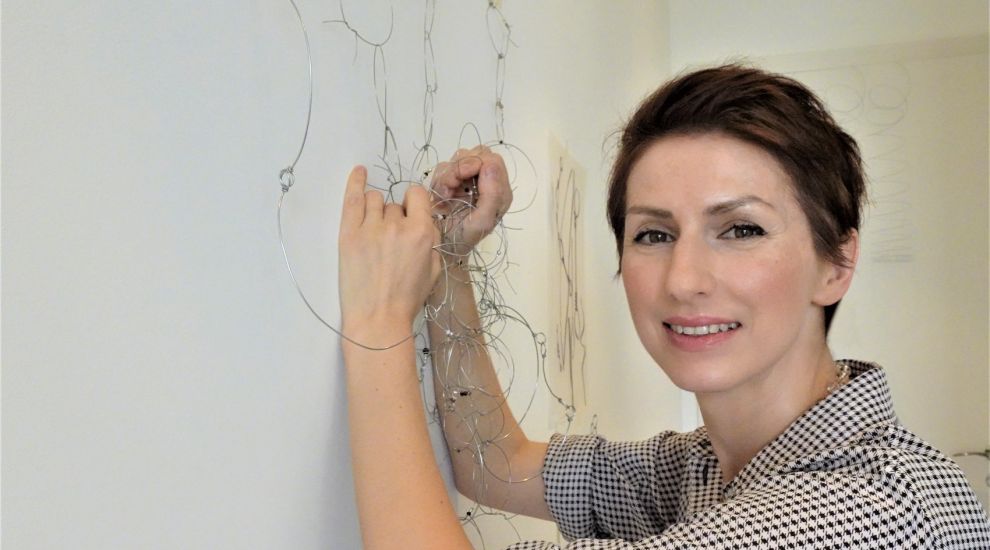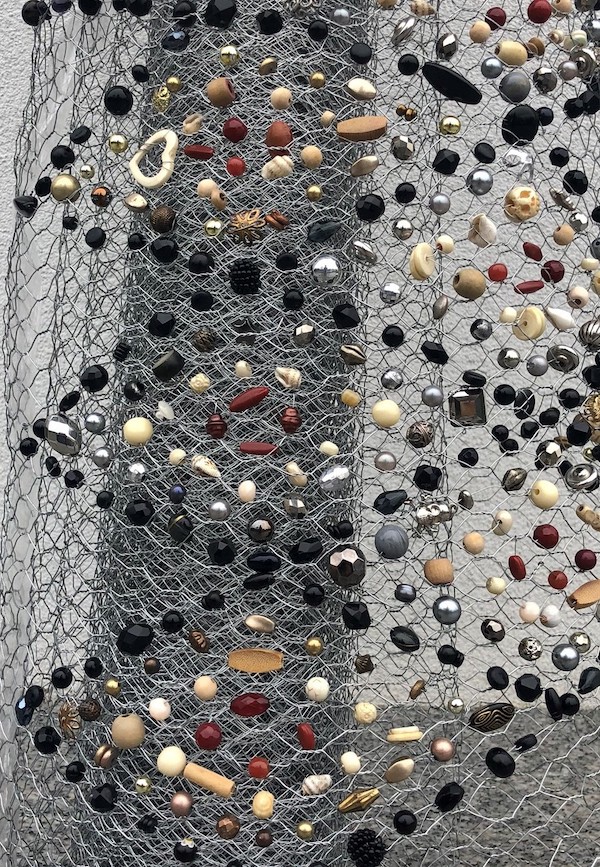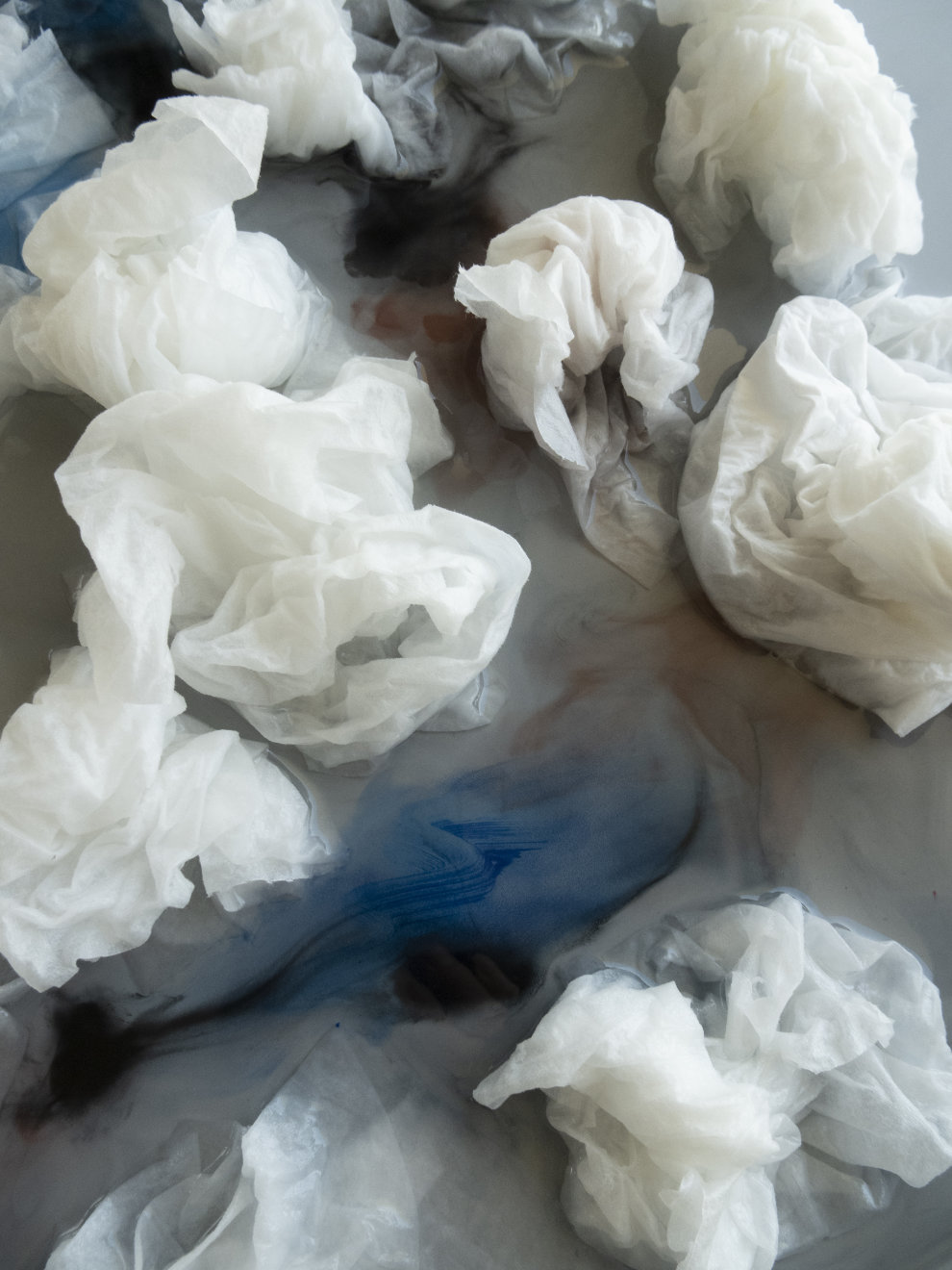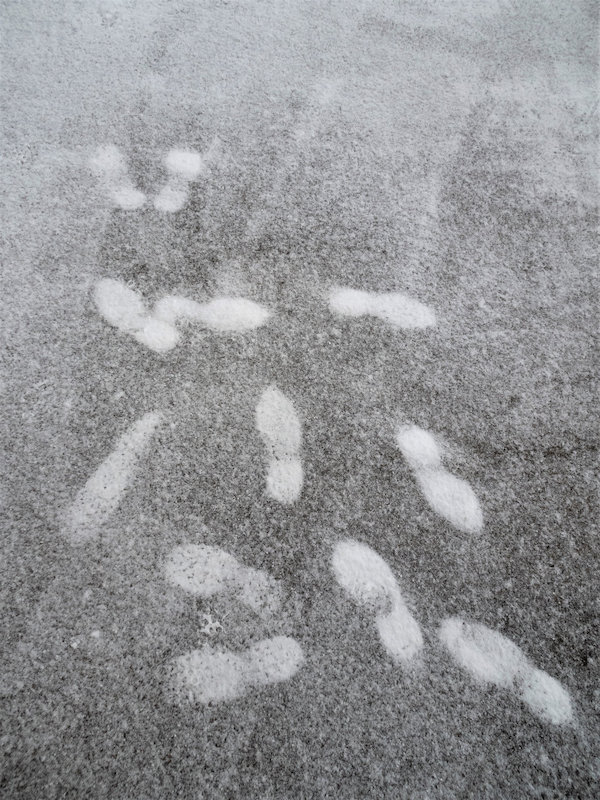


After a Linguistics degree, eight years working in the mining industry in Russia, an education in Art History, and a background in silversmithing and jewellery making, Yulia Makeyeva finally embraced her artistic endeavours late last year.
While her first year as a full-time artist didn’t go exactly as planned, Yulia has made the best of the current situation, drawing inspiration from the many ways our daily lives have been affected by the pandemic.
“I was always related to art in a in a way, but I never considered it to be a career,” Yulia admits.

Pictured: A close-up of Yulia's piece for for Skipton Big Ideas, which will take place next year.
That all changed last year after a three-month Art Portfolio course in London during which she experimented with different mediums, including photography, installations, video, collage, printmaking and traditional domestic crafts.
“Despite all the limitations, it was a very productive year for me,” Yulia said. “All the themes important to me, I reflected through the new experience of global restrictions. Lockdown sharpened my eye and I sourced inspiration from my home and from this new experience itself. I draw inspiration from our everyday encounters: our body, relationships, household, routine and unpredicted, memories, nature, information, language.”
Both the ‘Isolation Hug’ and ‘20x20 garden’ – which aim to document the collective and personal experience of social distancing in the time of the pandemic, as well as the longing for nature many felt during lockdown – are examples of community art, which is very close to Yulia’s heart.
Pictured: Yulia launched her ‘Jersey Isolation Hug’ project in April.
“Community and public art are important. It’s a great way of communicating ideas and involving the general public into art. I love to connect with people in different ways, either by physically doing something with people or drawing material and inspiration from people.”
Yulia’s work is also heavily influenced by her interest in the personal and collective memory, experience and responsibility, as well as multicultural. Born and raised in Russia, Yulia has been living in Jersey for the past three years.
“When I came, I was really embraced by the island the nature and the community,” she says.
“I really like this feeling of a very small island being quite big in how many nationalities are being represented here. It’s important to understand we cannot get away from this and go back to middle ages. It’s not possible or viable, it’s a part of our reality.

Pictured: Yulia's 'Water Lilies' captured "a testament to the fragility of the moments of beauty within our everyday environment and the conditions that create it".
“We are very multi-cultural, but we have to preserve and be proud of identity. I am not trying to hide that I am Russian, I am really proud that I can contribute to a different culture and give back to the community.”
Her piece for Skipton Big Ideas, an installation based on a ‘mosaic approach’, uses recycled beads collected from islanders and charity shops, and wire. “There will be material representing everything about Jersey as an island surrounded by water, the sea and waves. It’s community art because I sourced the material from the community,” Yulia said.
The multi-disciplinary artist is working on several projects, big and small, all at once, while also studying for the Art and Design foundation course at Highlands College and continuing to observe textures, patterns and shapes from everyday objects through photography.

Pictured: One of the images captures during Yulia's last day in Moscow.
She has also been poring over the archives at Jersey Heritage, researching the history of the Occupation and Russian slave workers, as well as local traditions and ‘signature items’ such as Jersey sweaters or walking sticks made out of Jersey cabbage.
“It’s a part of general culture, people try to simplify things and use the stereotype cliches. I think there are so many more things that can identify you and for example Jersey. You can source so much from the history of the island. I think it’s important to work on and develop and cherish the identity.”
This article first appeared in Connect, which you can read here.
Comments
Comments on this story express the views of the commentator only, not Bailiwick Publishing. We are unable to guarantee the accuracy of any of those comments.